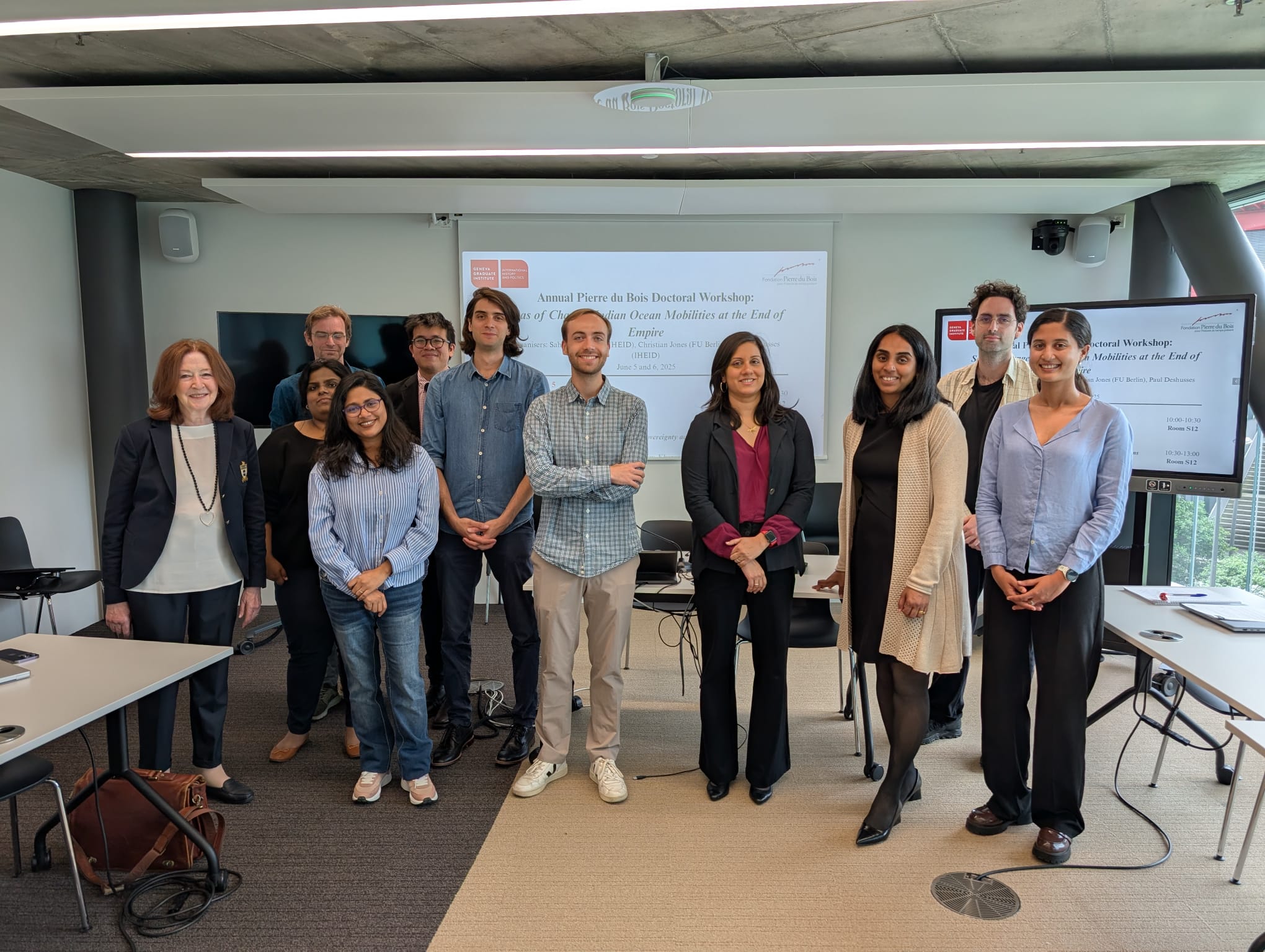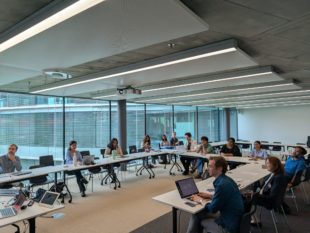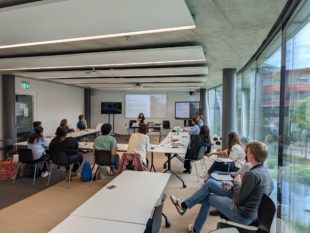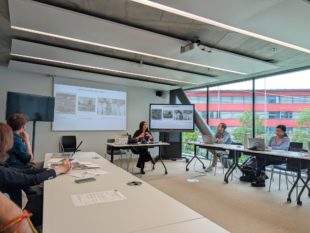The Fifth Annual Pierre du Bois Doctoral Workshop, organized by the Geneva Graduate Institute in partnership with the Pierre du Bois Foundation, took place at Maison de la Paix on 5–6 June 2025 and was a great success. The workshop’s title was “Seas of Change: Indian Ocean Mobilities at the End of Empire,” and the workshop was organized by Saheli Chatterjee and Paul Deshusses from the International History and Politics Department, and Christian Jones from the Freie Universität Berlin.
It aimed to bring together PhD researchers and early career scholars working on cultural maritime histories of the Indian Ocean in the mid and late-twentieth centuries. The objective of the workshop is to follow mobile lives at a time when multiple colonies across the Indian Ocean rim emerged as independent states, and explore how our understandings of the twentieth century of this region can be enriched by bringing together histories of decolonisation and histories of mobility.
In the twentieth century, when logics of settlement and statehood seemed to prevail, legacies of mobility, circulation, and cosmopolitan lives continued to unsettle attempts at territorial fixation. Turning their gaze towards the Indian Ocean, historians have observed how both colonial-metropolitan and “intercolonial” mobilities were transformed in this period.[1] With the rise of new nation-states, long-standing diasporic networks were constantly renegotiated across the Indian Ocean and the legacies of circular migrations were never quite buried.[2] These mobilities were both fragmented and reinforced by the transformations in statehood that occurred across the ocean, especially as mid-twentieth century wars, strategic alliances and anti-colonial struggles shaped the region. Highlighting the history of these mobilities helps us further question and reimagine our understandings of twentieth-century decolonisation. Therefore, in this workshop, we turn to histories of mobilities which are deeply entangled with histories of decolonization.
The objective of this workshop was to consider how recent histories of decolonization can be enriched by a focus on Indian Ocean mobilities, and of immobility, in the twentieth century. In this moment of violent ruptures and separations, what forms of mobility and diaspora persisted and prevailed? How do we imagine histories of oceans beyond its representation as a natural separator/border? How does a focus on mobility alter our dominant perceptions of space and time and what new periodisations of the twentieth century emerge as a result? These questions point to the relevance of studies that highlight issues of citizenship, belonging, minorities, borders, deportation, settlement, memory, race, interspecies encounters and more. In discussing these issues, this workshop sought to open up new horizons on the period by exploring the messy, tangled, and incomplete nature of decolonization, emphasizing the elusive and even “mundane” aspects of these mid-century upheavals.
[1] Sana Aiyar, Indians in Kenya: The politics of diaspora (Cambridge, Massachusetts: Harvard University Press, 2015); Sunil. S. Amrith, Crossing the Bay of Bengal: The Furies of Nature and the Fortunes of Migrants (Cambridge, Massachusetts: Harvard University Press, 2011).
[2] Kalyani Ramnath, Boats in a Storm: Law, Migration and Decolonisation in South and Southeast Asia, 1942-1962 (Stanford: Stanford University Press, 2023); Rohit De, A People’s Constitution: The Everyday Life of Law in the Indian Republic (Princeton: Princeton University Press, 2018); Engseng Ho, The Graves of Tarim: Genealogy and Mobility across the Indian Ocean (Berkeley, Los Angeles: University of California Press, 2006); Claude Markovits, Jacques Pouchepadass, and Sanjay Subrahmanyam, eds., Society and Circulation: Mobile People and Itinerant Cultures in South Asia, 1750-1950 (Delhi: Permanent Black, 2003).For continued circulation of objects and texts across the Bay of Bengal after mid-twentieth century, see for example, Mrinmoy Pramanik, Chena Durer Kotha: Burmabashi Bangalir Sahitya Patrika ‘Pragati’( Kolkata: Jadavpur University Press, 2023).
Workshop Poster_Seas of Change_June2025-1




